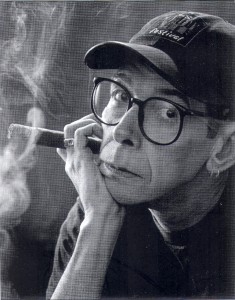Veteran Virtuoso Dave MacKenzie Discusses Diversity In Making Music and Pleasing Audiences
Just back after his seventh European tour,peripatetic Dave MacKenzie took some time out to talk about some of the hills and valleys that he has encountered on the map of modern music making.Tunesmith MacKenzie spent his early years doing a variety of gigs in and around his hometown Saint Louis, Mo.In 1972 he moved to Chicago,then to Los Angeles in the Eighties and now makes his home base in Nashville,Tennessee.When asked about the life of a working musician in the Gateway City he responded,”Let’s face it, you can have a real nice career playing in St. Louis.I have lots of friends,people that I used to play in bands with,and they are happy as a clam being there.But if you want to do other stuff…you are not going to get work in commercials in St. Louis…too much…and it’s going to be a lot harder to get your songs recorded(by other artists).They’re making a few records in St. Louis but not that many. That’s why I moved from Chicago to Los Angeles in 1980;I got a chance to have my songs recorded by David Soul (of Starsky and Hutch)“.Later MacKenzie got an opportunity to write songs for Soul’s music publishing company.
MacKenzie had begun to hone and diversify his skills years before while studying musical theory in St. Louis.Although Mississippi Delta slide guitar is his area of expertise,he emphasizes that that talent alone would not have been enough to establish his unique professional credentials.”If all that you are studying is Delta blues guitar,he states,”you’re not going to know how to cut frame to make television commercials.” He went on to explain,”When I perform I mostly play the blues stuff,because that’s what my particular markets wants to hear;but I write all kinds of songs.”
His Old,New Borrowed & Blue c.d. available now on MacKenzie’s own Hey Baby! label was originally released on a European label.When asked if there was a different level of appreciation for blues music in older cultures;he replied,”Hard core acoustic blues fans are the same in terms of their interests anywhere that you go.Their appreciation would have to bedifferent.English is not their first language and they don’t really share a lot of the experiences of the original country blues material,but I’ve met guys over there that really know how to play.”
MacKenzie went on to talk about a band from Holland that was making an album sung in their native tongue; “But it will have an American string band sound.” He expressed a strong enthusiasm for this kind of ecumenical blending.He suggested that maybe Americans have taken their own musical heritage for granted.”It’s not exotic for us,whereas in Europe there is a real reverence for blues and jazz.”As for the case of paradoxical musical sensibilities; i.e.young Blacks not cultivating their own musical heritage while middle class whites embrace it; MacKenzie brought up the marketing component.”There are a whole lot of young black guys paying the blues now-that’s a hopeful sign.They weren’t around when I was in my twenties and thirties-Guy Davis,Fruitland Jackson,Alvin Youngblood Hart.As far as the young black music fan,it’s a question of how their music is being marketed to them.They might not know about Duke Ellington.They don’t know about Louis Armstrong-the real bedrocks of African-American music…of American music for that matter.”
“The same thing could be said for your average white boy in Nashville,Tennessee.He doesn’t know squat about Hank Williams.He’ll tell you a lot about Kid Rock,but he doesn’t know anything about Bill Monroe,unless his parents sit him down and tell him.”MacKenzie chuckled,”And that doesn’t usually happen.”He continued,”The argument from the big corporate entities is that there is no audience for that kind of music.If that were true,the music would have died off,but it hasn’t.The fact of the matter is that there is market that is not being served.”
When he himself performs,MacKenzie shares the bill with a wide spectrum of non-blues acts.He is therefore able to introduce his acoustic blues to audiences that are eager to broaden their musical horizons.”They ask me who else plays this kind of music.And they want to know where else they can hear this music.I find that the average person is remarkably open minded about the material.”
“They are the same people that go on a cruise and come back and want to hear Mexican music.They may not understand a word,but they like the sound.I think that everyone is pretty much like that.It’s a matter of what you are exposed to.That’s the thing about blues,bluegrass and even jazz.It doesn’t have that academic encrustation that maybe classical music might have.With those kinds of music folks just say,’I like the sound of that.”
“When I was a kid,”the singer/songwriter continued,”you could turn on the radio and hear,at least on what was then called underground radio,maybe a lineup of Iron Butterfly,Lightin’ Hopkins and then maybe Miles Davis.I know people that that was their first exposure to artists like Howlin’ Wolf or Muddy Waters- that doesn’t happen anymore.FM radio was a brand new thing thirty or so years ago.It was wide open.They could play whatever the hell they wanted to.Now there is a lot of money on the table and most of these stations are owned by only a few corporations.”
“That’s what’s good about a station like KDHX in Saint Louis,Mo.-diversity!That kind of thing is getting rarer and rarer in most towns.”
